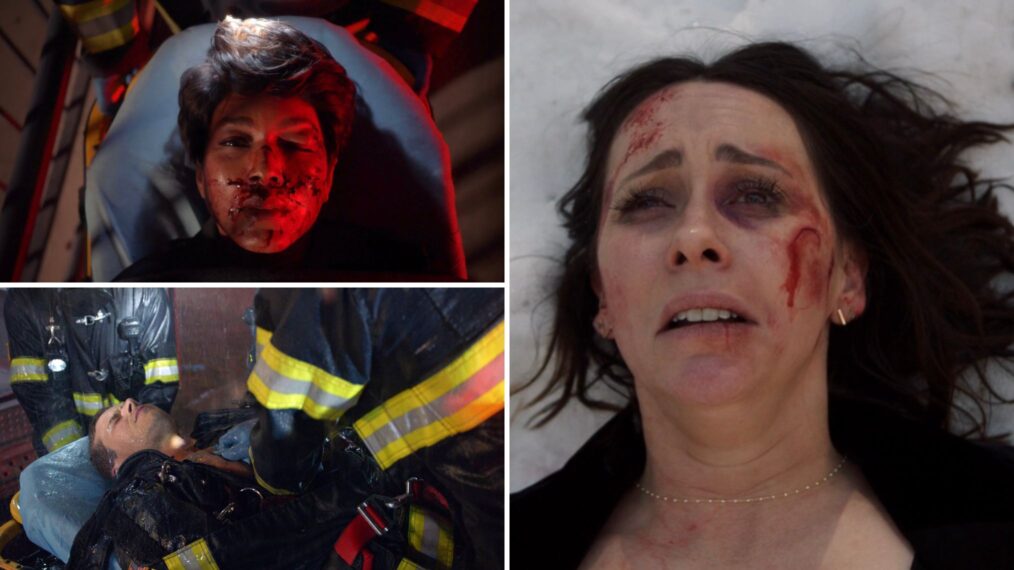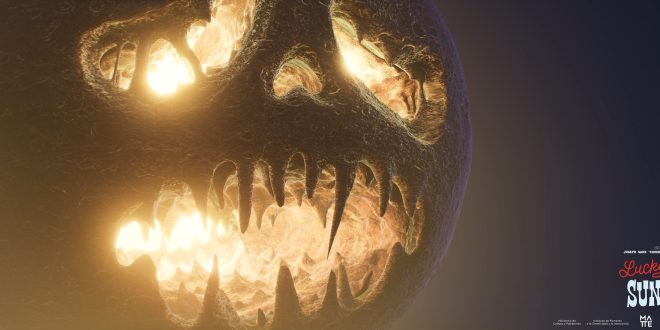A tale as old as time; a Catholic church representative must battle their inner demons to save the soul of a possessed child. Prey for the Devil attempts to retell this tired story with the gimmick of an aspiring female exorcist but never manages to pull together a narrative cohesive or scary enough to rise above a patchwork of familiar possession horror tropes.
It’s 2018. Demonic possession cases have become so prevalent that the Catholic Church has created schools with the sole purpose of teaching priests the Rite of Exorcism while nuns act as bedside nurses to the possessed. Sister Ann (Jacqueline Byers) finds herself drawn to the role of exorcist, even sneaking into exclusive male classes taught by Father Quinn (Colin Salmon), to the chagrin of her superior. Her persistent pursuit of exorcism studies and personal approach to nursing eventually puts her on the frontline of the battle to rid young Natalie (Posy Taylor) before her possession case becomes terminal.
Robert Zappia’s script favors telling over showing, at least in worldbuilding and narrative. Sister Ann is a special chosen one with a traumatic childhood linked to possession, but Prey for the Devil never makes a concise, compelling case for why or how. Instead, Ann’s gift seems based on nebulous concepts of empathy and deep-seated guilt. That’s the crux of the entire film; a series of underbaked plot points without depth or purpose.

Jacqueline Byers as Sister Ann and Posy Taylor as Natalie in The Devil’s Light Photo Credit: Vlad Cioplea/Lionsgate
For example, Dr. Peters (Virginia Madsen) coaxes exposition out of Sister Ann through their therapy sessions. Dr. Peters also works for the school, monitoring its locked-up patients to determine whether they’re possessed or mentally unwell. We understand this through straightforward dialogue early on but never see it in action to fully understand why a skeptic would assume this position or why the Church would enlist someone at odds with their ideology for their demon cleansing aims. Dr. Peters never amounts to anything more than a means of encouraging Ann along some incoherent and vague path to greatness. Not even exorcisms get defined. Priests often stare at the possessed in horror, attempt to read a bible verse, then cower until Sister Ann’s empathy prompts her to take over.
Director Daniel Stamm attempts to fill in the gaping story blanks with jump scares and horror imagery, often resorting to the same tactics from The Last Exorcism. Stamm employs a variety of cheap scare tactics in between bursts of overwrought emotional revelations for Sister Ann. There are no immediate tell-tale signs of possession, just a fuzzy notion that someone might be harboring a demon like a tingling spider-sense. It’s an attempt to catch audiences off guard when the suspected possessed unhinges their jaws, eyes roll up, and body contorts into a backbend.
Prey for the Devil is messy and nonsensical. It’s so haphazard in its ideas and plotting that it makes less sense the more you think about it. There’s a lack of precision in its rules or lack thereof, and it creates bizarre mixed messaging—the clash of medicine and religion, for one. Or the subplot about Father Dante (Christian Navarro) and his sister gripped with grief and guilt for aborting a product of rape. Never mind that Sister Ann seems to cause harm to everyone in her path and gets heralded a divine hero for it. It might be easier to overlook if any of the horror had bite.
It’s as though Prey for the Devil pats itself on the back for coming up with the novel idea of a female exorcist and diversity within the school, then stops there lest it shakes up the status quo too much. Behind the gimmick is a vapid and hollow exorcism horror movie we’ve seen countless times before. Instead of grappling with faith, the protagonist struggles to keep guilt and trauma at bay. A possessed little girl serves as the battleground, complete with all the possession trimmings. Prey for the Devil at least gets one thing right; you’ll be praying for the Devil to put an end to this wackiness.
Prey for the Devil is out in theaters now.













































:quality(85):upscale()/2024/12/24/622/n/1922564/9eb50f2c676abd9f1647c5.05876809_.jpg)


























